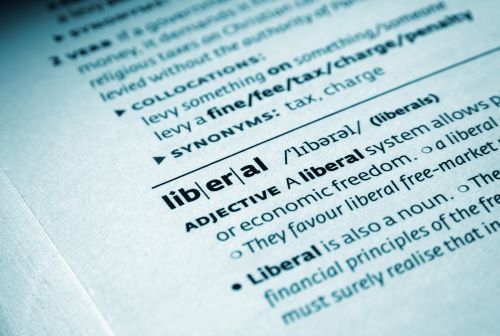Liberty Matters
The Cost of Reproducing Ideas Has Fallen for Everyone
 Jeffrey Tucker's comments raise the question of whether the historical examples I drew upon are relevant for the brave new world opened up by the Internet. My thoughts about the structure of production of ideas were based upon the empirical observation of several historical examples drawn mainly from the 18th and 19th centuries and in postwar America and England. It was a functional analysis in that I identified several key functions/activities which needed to be undertaken if ideas (of any kind) were to be created, transmitted to others, and put into effect. From this study one should then ask whether all these activities must be present if change is to be brought about. Can we explain the failure of past attempts to change society by the absence or incomplete development of any of these stages? My study also included the importance of the division of labor in the production of ideas, as in any other kind of production, ranging from investors with long-term interests, entrepreneurs of ideas who can see an unmet market need and who can assemble all the people with different sets of skills to work together harmoniously, as well as a sales force that can sell the product to the ultimate consumers.
Jeffrey Tucker's comments raise the question of whether the historical examples I drew upon are relevant for the brave new world opened up by the Internet. My thoughts about the structure of production of ideas were based upon the empirical observation of several historical examples drawn mainly from the 18th and 19th centuries and in postwar America and England. It was a functional analysis in that I identified several key functions/activities which needed to be undertaken if ideas (of any kind) were to be created, transmitted to others, and put into effect. From this study one should then ask whether all these activities must be present if change is to be brought about. Can we explain the failure of past attempts to change society by the absence or incomplete development of any of these stages? My study also included the importance of the division of labor in the production of ideas, as in any other kind of production, ranging from investors with long-term interests, entrepreneurs of ideas who can see an unmet market need and who can assemble all the people with different sets of skills to work together harmoniously, as well as a sales force that can sell the product to the ultimate consumers.In these historical cases, especially in the years immediately following World War II, liberal-minded people were in short supply, funding was limited, and the intellectual opposition faced by classical liberals was enormous. The question faced by any investor or entrepreneur who wished to bring his goods to market (whether physical goods or ideas) was how to allocate scarce and costly resources to their best use. Where should we start? Can we find a niche for our particular product? How can we get consumers of ideas interested in our product? Will they "buy it"?
Jeff argues that what is different now in the Internet age is the "costlessness" of the reproduction of ideas. This is indeed true -- or rather the price has dropped considerably; it is still not costless. But it is true for all our competitors as well. We still observe that classical-liberal ideas are scarce compared to all the non-liberal ideas out there, so I would argue that the relative scarcity of classical-liberal ideas remains about the same. We are constantly faced with the danger of being crowded out in the marketplace of ideas. The problem is still: how do we get our ideas heard above the din made by all the other hawkers of ideas in the market? This is the perennial question that needs answering. Perhaps in our time, when we have numerous bodies/groups active in the higher and middle stages of the structure of production of ideas, the role of marketeers and salespeople is much greater than ever before.
Steve Davies makes a similar remark about how "the development of new technologies and the alterations in the material conditions of life that they bring about lead to both an increase in personal choice and autonomy and a consequent alteration in thinking, perceptions, and understanding of the world." The point is well taken, but the issue remains how best to channel those newly unleashed energies in an explicitly pro-liberty direction. Both Jeff and Steve seem to be suggesting that it is enough to just unleash these new creative energies and the problem of liberty will take care of itself. This seems to me to be a variant of Marshall McLuhan’s expression that "the medium is the message," or in this case, "Liberty is a product of the medium."[106]
Endnotes
[106.] Marshall McLuhan and Quentin Fiore, The Medium is the Massage: An Inventory of Effects, coordinated by Jerome Agel (New York: Random House, 1967).
Copyright and Fair Use Statement
“Liberty Matters” is the copyright of Liberty Fund, Inc. This material is put on line to further the educational goals of Liberty Fund, Inc. These essays and responses may be quoted and otherwise used under “fair use” provisions for educational and academic purposes. To reprint these essays in course booklets requires the prior permission of Liberty Fund, Inc. Please contact oll@libertyfund.org if you have any questions.